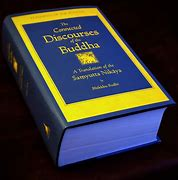that intelligence evolved because human beings needed to infer and anticipate the intentions of other human beings, not because they wanted to understand the universe;
(however, intelligence, once evolved, was then used to understand the universe);
that people are so used to dealing with human agency that they project agency onto inanimate nature.
This has implications for spiritual practice:
some Bodhisattvas are acknowledged personifications of wisdom and compassion;
in Hindu philosophy, the pronoun applied to ultimate reality can be "He" or "THAT";
contemplation is not negation but transcendence of habitual thought processes.
Within this kind of philosophical and scientific framework, we read Poul Anderson's accounts of human-alien interactions.

1 comment:
Kaor, Paul!
And I believe Aristotelian Scholasticism, with its stress on logical reasoning, would make a far better intellectual framework, and not Buddhism or Hinduism. In fact, as Anderson discussed in IS THERE LIFE ON OTHER WORLDS?, a true science arose, in part, because of Scholasticism. And many other factors, of course.
Ad astra! Sean
Post a Comment